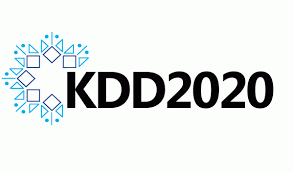Call for Papers
As a basic and effective tool for explanation, prediction and decision making, causal relationships have been utilized in almost all disciplines. Traditionally, causal relationships are identified by making use of interventions or randomized controlled experiments. However, conducting such experiments is often expensive or even impossible due to cost or ethical concerns. Therefore there has been an increasing interest in discovering causal relationships based on observational data, and in the past few decades, significant contributions have been made to this field by computer scientists.
Inspired by such
achievements and following the success of CD 2016, 2017, 2018, and 2019
CD 2020 continues to serve as a forum for researchers and practitioners in data
mining and other disciplines to share their recent research in causal discovery
in their respective fields and to explore the possibility of interdisciplinary
collaborations in the study of causality. Based on the platform of KDD, this
workshop is especially interested in attracting contributions that link data
mining/machine learning research with causal discovery, and solutions to causal
discovery in large scale data sets.
 Topics of Interest
Topics of Interest
The workshop
invites submissions on all topics of causal discovery, including but not limited
to:
-
Causal structure learning
-
Local casual structure discovery
-
Causal discovery in high-dimensional data
-
Integration of experimental and observational data for causal
discovery
-
Real world applications of causal discovery (e.g. in
bioinformatics)
- Applications of data mining approaches to causal discovery
- Assessment of causal discovery methods
 Important Dates
Important Dates
-
May 20, June 05: Paper submission deadline
- June 15, 2020: Notification of acceptance/rejection
- July 15, 2020: camera-ready submission deadline for accepted papers
- August 24, 2020: Workshop date
 Paper
Submission and Publications
Paper
Submission and Publications
Papers submitted to
this workshop must not be under review or accepted for publication elsewhere.
All submitted papers will be reviewed and selected by the program committee on
the basis of originality, technical quality, relevance to the workshop and
presentation quality.
Papers must follow
the
Instructions for
Authors
of the Journal of Machine Learning Research. All papers must be submitted via
EasyChair submission system.
Thuc Le, University of South Australia
Lin Liu, University of South Australia
Kun Zhang, Carnegie Mellon University
Emre Kıcıman, Microsoft Research
Peng Cui, Tsinghua University China
Aapo Hyvärinen, University of Helsinki
Please visit workshop website:
http://4llab.net/workshops.html
![]() Workshop Organizers
Workshop Organizers
![]() Further Information
Further Information

